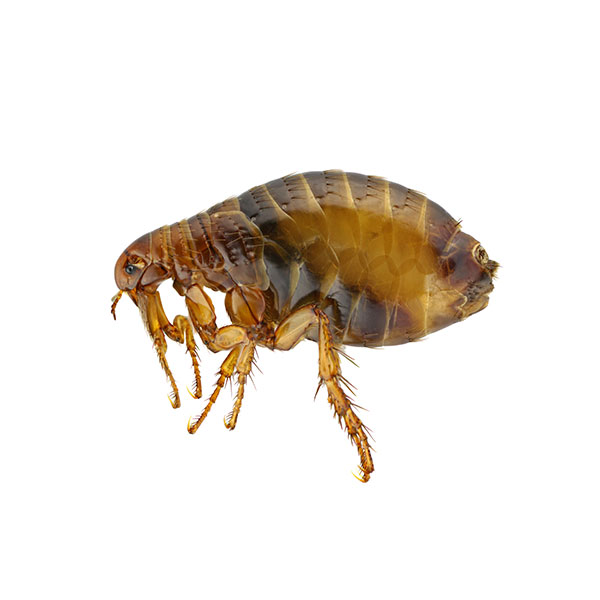Description
Fleas in Spokane, WA and Coeur d'Alene, ID
Fleas are most known for attaching to pets, where they leave behind a plethora of small and itchy bite marks. They are the most famous ectoparasite, and they exclusively feed on the blood of their hosts. Outdoors, fleas often live in damp and dark areas such as tall grass and leaf litter. Since fleas can jump 50 to 100 times their body length, they usually leap from their hiding places to attach to animals. Though these pests generally do not live on humans, they can spread disease and may even lead to large health issues like anemia for pets.
Flea Habitat
Fleas are extremely common and can be found everywhere in the world – even Antarctica! That said, these pests thrive in moist, humid, and shaded areas. Outdoors, they may hide beneath porches or in tall grass and leaf litter. Since fleas are tiny, even the smallest cracks in concrete can become homes for these pests. From their hiding places, fleas often leap onto animals, where they hide in fur and feed. Fleas are typically carried indoors on the backs of animals, which is why flea prevention begins with protecting your pets from these parasites. Because flea larvae do not like light, these pests typically lay their eggs in areas like carpet or bedding.
Flea Behaviors, Threats, or Dangers
Fleas mainly feed on animals, though they may also bite humans. Flea bites look like small red dots in clusters of two or three, and they are typically located near the feet, ankles, and legs. In some individuals, bites may trigger an allergic reaction. These pests have also been known to carry tapeworms and diseases like Lyme disease and typhus. Fleas can also cause major health complications for pets, such as anemia, dermatitis, and internal infections. If you notice an outbreak of fleas on your pets or in your home, it is recommended to contact your local flea exterminators for help as soon as possible.
Need help with Flea control?
We'll call you! Leave your information below.
